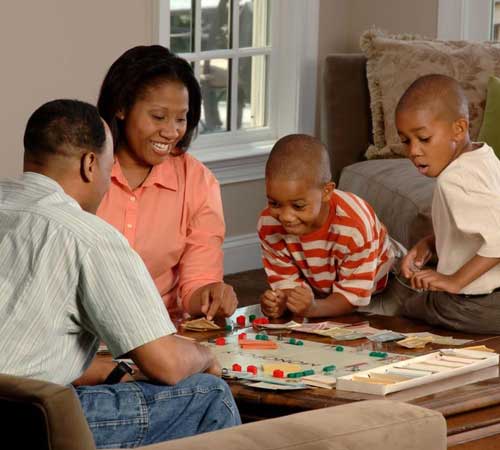

The best way to go about it is to do this ahead of time, explaining the changes her body will be going through, growth of pubic hair, sprouting of breasts, menstruation, sex, etc.
Most importantly, you should be ready to openly answer any questions she asks.
Here’s how to go about it:
1. Find Ways To Start The Conversation
You can casually bring it up on a car ride or while you go for a walk in the neighbourhood but create or wait till you two have some privacy before bringing up the talk.
You can approach it by pointing out how her grandparents are changing, and then tying that to how everyone’s body changes over time.
Interestingly, having open conversations is great, as it fosters an open family atmosphere where other siblings and both parents have open discussions about puberty and sexuality if your family is normally private or reticent about these things.
However, now is probably not the time to force openness.
Your young lady will probably not appreciate her body changes being discussed in front of her brothers or her father, in particular.
2. Help Her Establish A Personal Hygiene Routine.
The coming of puberty is a great time for your daughter to take control of her own personal hygiene and work out a schedule for it.
Therefore, you want to ensure that she understands that she should bathe preferably twice daily, at least once a day; change her undies at least twice daily, and take care of her skin, hair, and nails.
3. Teach Her How To Wash Her Face Properly To Prevent Acne
The puberty stage is a time when most girls battle acne to some degree.
Thankfully, it is something that good hygiene can minimise.
You May Also Find This Article: Helpful
Show your girl how to wash her face properly in the morning and evening to prevent the buildup of oil and dirt, which can cause breakouts.
If her skin is dry, demonstrate how she can moisturise her face after washing it. and help her choose a face wash and moisturiser that suits her particular skin type.
4. Talk About Shaving When Her Body Hair Starts To Grow
Assure your daughter that the sprouting of body hair is perfectly normal during puberty, particularly on the underarms, pubic area, and legs.
Teach her also for when she chooses to shave, the proper way to do it without cutting herself.
You can give your daughter a shaving cream, scissors, shaving stick/a single-blade razor to start with, to minimize the risks of cuts while shaving.
Alternatively, you can provide an electric or battery-operated razor, which will be safer but provide a shave that is less close.
5. Get Her Deodorant Or Antiperspirant To Help Reduce Body Odor
During puberty, the underarm sweat glands are stimulated, causing sweat and well, odor.
When you get to the supermarket (preferably have her come with you so she can choose the brand and scent that she prefers), buy an underarm deodorant, which will reduce the smell of body odor, or antiperspirant, which will cut down the sweat produced.
Tell your daughter to apply it every day after bathing.
6. Tell Her All About The Menstrual Period
You could start by stating in simple terms what happens in the female body during a normal 28-day menstrual cycle.
Explain to her that the uterus builds a lining to feed a fertilised egg, but if pregnancy doesn’t occur, the lining is shed and that when this happens, blood and menstrual fluid are released through the vagina.
Give details on how this all plays out over the 28-day timeline, bringing to her understanding, how each menstrual cycle works is valuable and practical information for her to have.
Have You Read: How To Discipline Toddlers
Do not leave out some of the emotional effects that menstruation may cause. It is important you prepare your daughter for the hormonal changes she will experience during her menstrual cycle.
Let her know how hormone levels drop right before a woman starts her period, which may cause sadness, irritability, or mood swings; and that all this is popular and completely normal.
Finalize by reassuring her that there will always be ways for her to cheer herself up when she experiences these emotions and that it won’t last long.
7. Prepare Her For The Physical Symptoms That She May Experience During Her Cycle.
Premenstrual syndrome (PMS) symptoms and menstrual cramps are difficult symptoms that most women have to deal with.
Assure her that these side effects of the menstrual cycle are temporary and that her discomfort can be managed. Do not fail to inform her too, about some reliable remedies, as:
- A heating pad or hot water bottle to relieve cramps
- Taking an over-the-counter pain reliever like ibuprofen to reduce intense cramps
- Exercising and eating healthy to curb bloating during the period.
8. Ensure It’s A Two-way Thing; Give Room For Questions
Most teens and preteens won’t have a lot of questions if you put them on the spot, but you can always keep the door open for questions in the future.
Let her know that she can come to you with any questions at all, no matter how silly it might seem to her.
Assure her you will always be honest with her and do your best to keep that promise. Let her know that you may not always know the answer, but you will always help her find it.
When she eventually does come to you with questions, something like “Mum, can I get pregnant from kissing?” for example, do not freak out, pull the morality card or laugh her questions off.
Remember, she does not have as much knowledge as you have.
Your aim is to get her to feel comfortable asking questions and coming to you with her concerns.
However, if you fail to cultivate an atmosphere of openness and safety in your home, she will feel obligated to find her answers elsewhere, which is oftentimes unsafe.
Find more parenting resources here.




